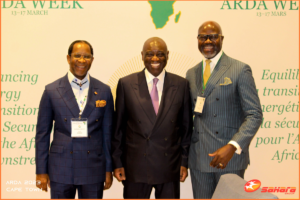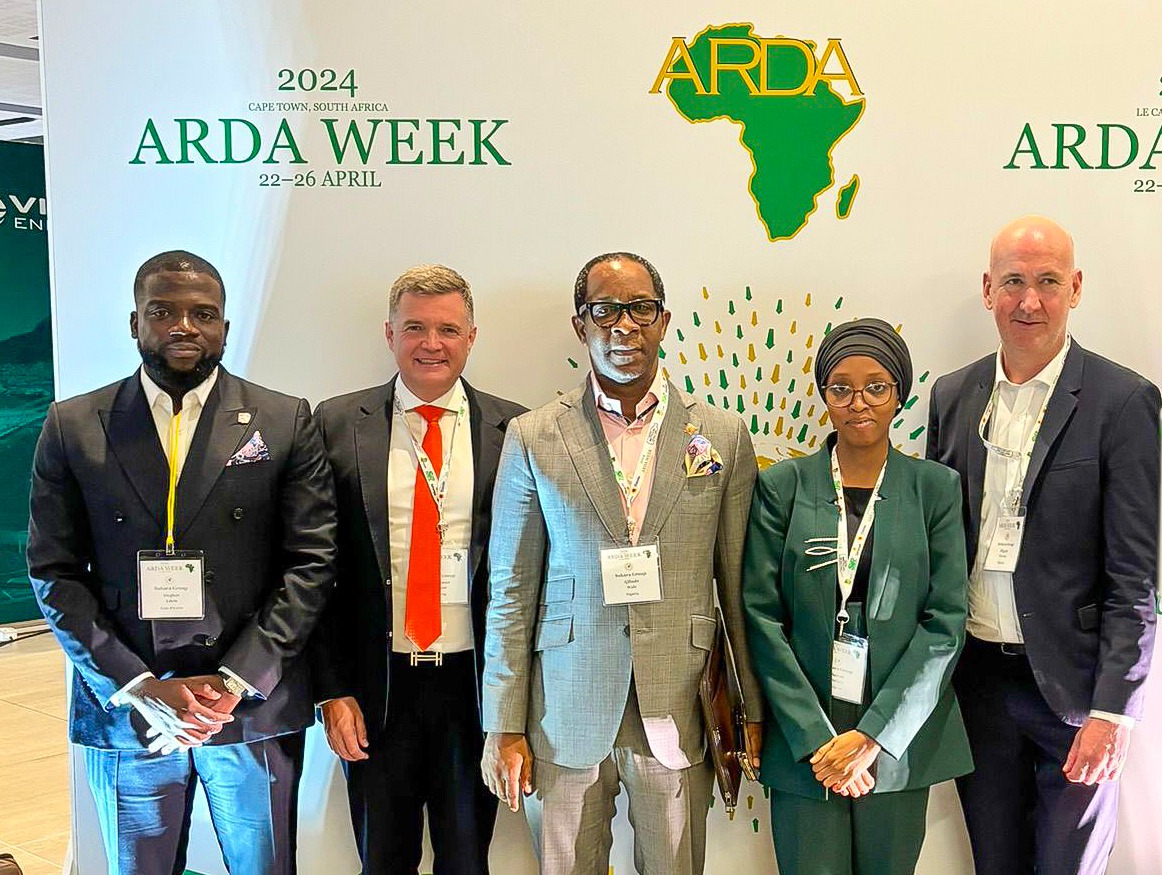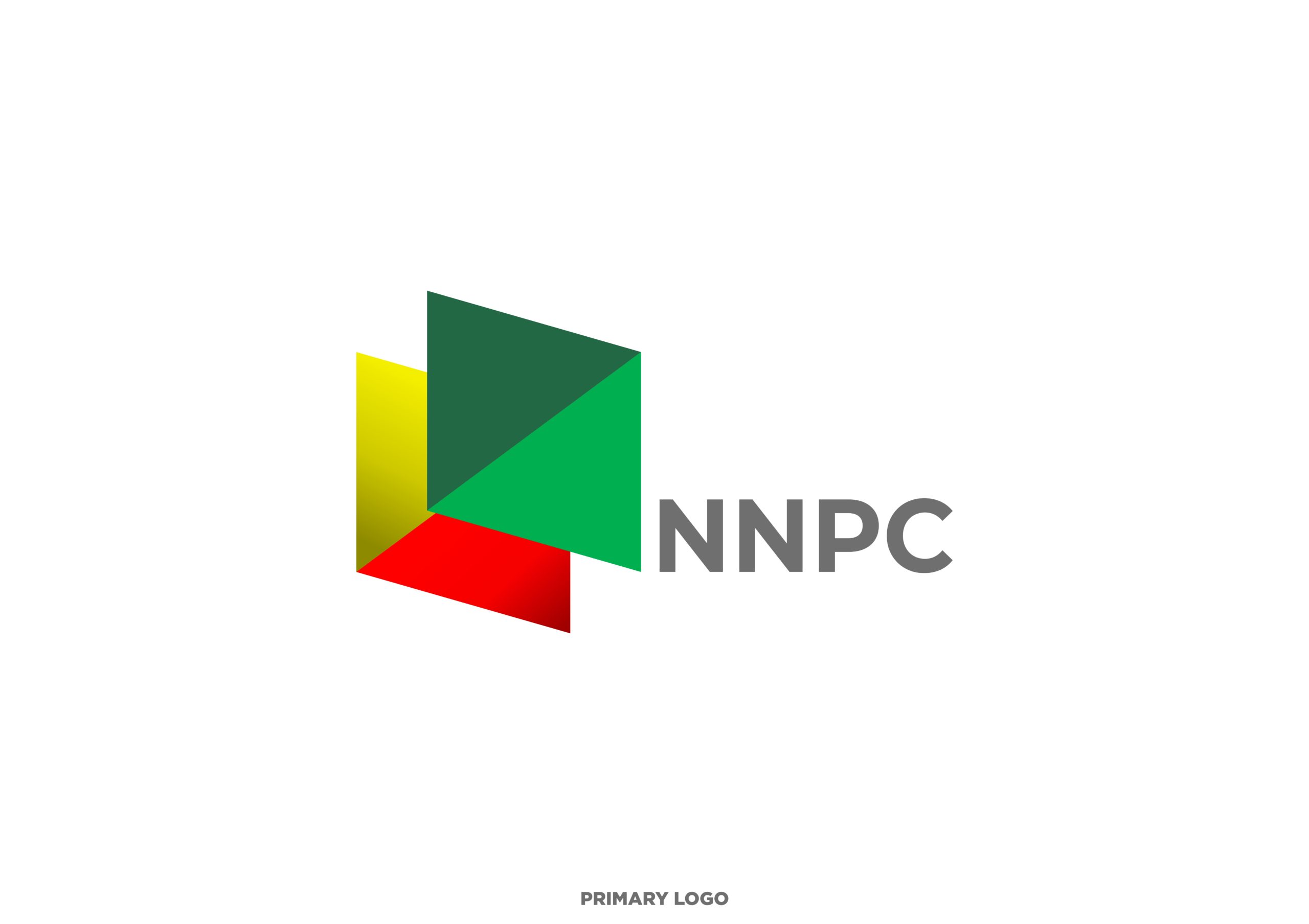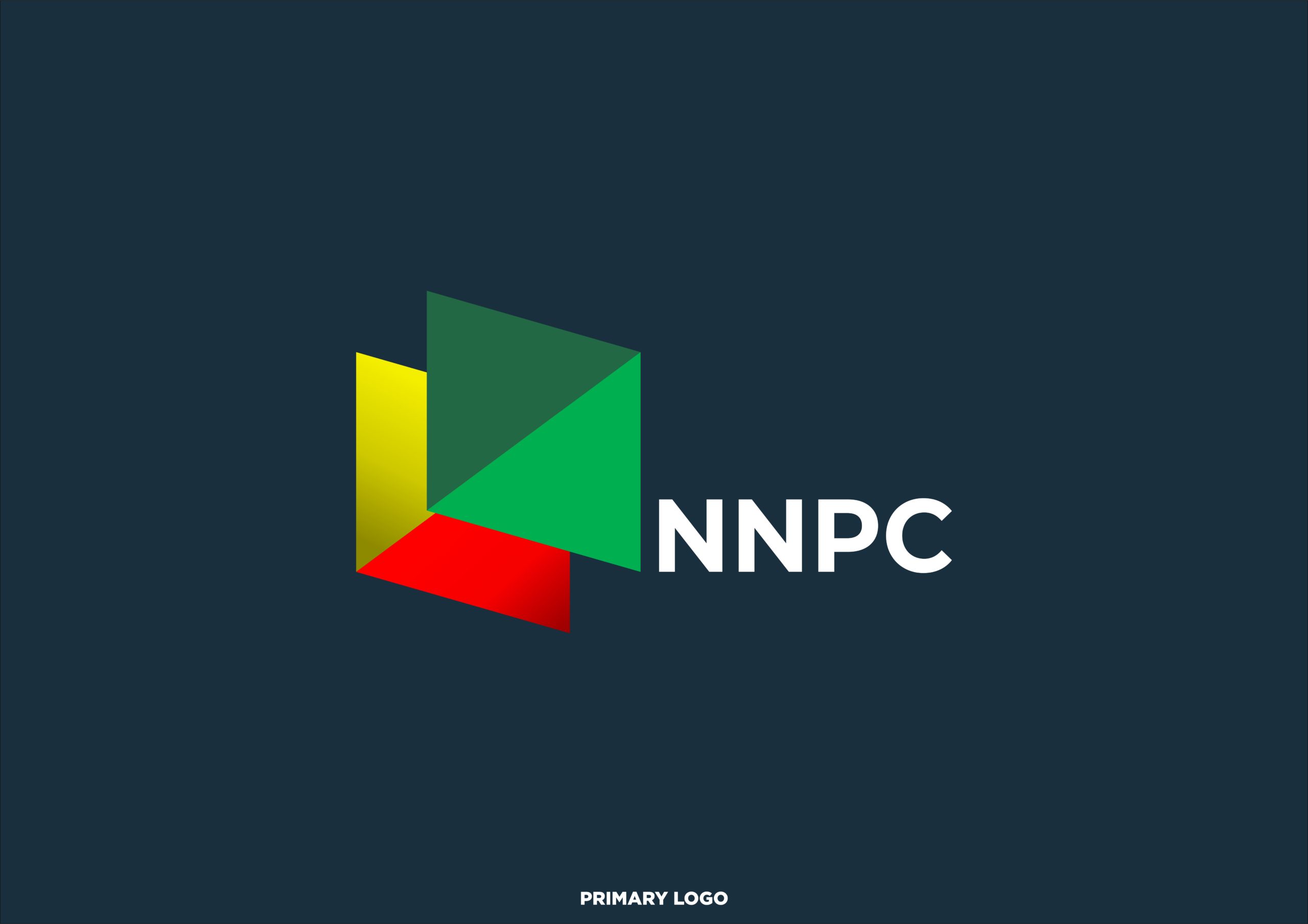Energy
Sahara Group Urges Collaboration, Investments In Sustainable Energy In Africa

Africa requires enabling energy policies, effective regulatory frameworks, investments, and collaboration to meet soaring energy needs across the continent, Wale Ajibade, Executive Director, Sahara Group has said.
Addressing top energy operators, regulators, and government functionaries at the 2023 African Refiners and Distributors Association (ARDA) Week in Cape Town, Ajibade said the current level of global investments on renewable energy was inadequate to enable Africa embrace more alternative energy sources.
Ajibade who delivered a paper titled, “Meeting Africa’s Growing Energy Requirements in the Evolving Global Landscape,” said adequate policies were vital for African countries to address foreign investors’ concerns and limit investment risks exposures.
“Over the past two decades, global investment in renewable energy has grown rapidly. Yet less than three per cent of these investments come to Africa. Africa continues to receive only a small portion of the total global investment in renewable energy,” he said.
He said the continent needs to work together to transform inherent risks and inefficiencies in the system into opportunities for ramping up energy supply from multiple sources.
“Our individual differences as countries within this continent only serve to strengthen the brilliant and colorful fabric of our cultures. With boots on ground, in over 24 African countries, we as Sahara Group know more than most that what works in one location may not necessarily be what works in the other. We have always had to overcome our challenges and propel ourselves forward by ourselves and for ourselves as Africans,” he said.
He noted that despite the dearth of investments, Africa could still strive towards meeting the continent’s energy needs through collaboration and prioritizing “the African narrative for Africans by Africans”.
“Africa will meet its growing energy requirement in the evolving global landscape, but we will do it the African way. This will be done drawing on collaborations and best business practices, embracing our diversities in cultures but always steadfast in moving forward and bringing energy to life responsibly,” he said.
He added: “As we gradually transition to renewable energy, the conditions for solar power literally shine as bright as the sun on this continent. The potential for wind energy blows through our continent ceaselessly. Africa has amongst the largest untapped potential for hydropower development and as we all know we have just begun to scratch the surface of natural gas.”
Ajibade noted that some countries on the continent were already promoting several policies and regulations to ramp up capacity for renewables in Africa.
“Case in point – solar power: Nigeria’s photovoltaic power potential makes solar energy very feasible for both investors and consumers. Sahara Group is currently harnessing this potential through the implementation of large-scale and mini-grid solar projects,” he stated.

L-R:
Executive Director, Sahara Group, Wale Ajibade, Global Head, Afrexim Bank, Mr. Rene Awambeng, and Executive Secretary, African Refiners and Distributors Association (ARDA), Mr. Anibor Kragha at the ARDA Week 2023 in Cape Town, South Africa.
On the growing importance of gas as a transition fuel, Ajibade said Africa was already witnessing remarkable progress in this regard.
“There was a time when it was unfathomable that an African company would order and build the first ever African owned LPG vessels as well as lift gas in Africa and supply to counterparts in Africa. I’m proud to say that Sahara’s vessels namely MT Africa Gas, MT Sahara Gas, MT SAPET to name a few have lifted African gas and supplied it within the continent of Africa,” he said.
According to Ajibade, meeting Africa’s growing energy needs will also require a “just transition” fueled by developing and maximizing the potential of African crude oil production in a “more sustainable manner”.
“Oil will continue to be an important source of energy but needs to be cleaner to meet global standards. We must ensure the sustainable development of our hydrocarbon resources while reducing methane emissions and flaring to achieve energy security and sustainability at the same time. The increase in the use of CCUS technology presents an opportunity for the industry to be fully exploited for reliability, environmental sustainability, and Africa’s GDP expansion. If we are to build our own ‘Wakanda’, we’re going to have to do it responsibly,” he concluded.
Energy
Sahara Group Urges More Refining, Storage To Boost Africa’s Downstream

Inadequate refining capacity, insufficient storage, and impeded product movement across Africa are the three major impediments slowing the growth of the continent’s downstream oil sector, Wale Ajibade, Executive Director, Sahara Group has said.
Ajibade expressed his views in a paper “Africa Downstream Market Developments and Forecast” presented at the recently concluded Africa Refiners and Distributors Association (ARDA) Week 2024 in Cape Town, South Africa.
He maintained that addressing these gaps would transform Africa’s downstream petroleum industry.
Biztellers reports that the ARDA Week 2024 is Africa’s foremost gathering of stakeholders in the downstream oil industry.
Ajibade noted that shoring up the continent’s refining capacity was critical to sustaining efficiency, availability and accessibility in the sector.
He explained that as Africa explored ways of achieving hitch-free energy transition, efforts must be made to ensure optimisation of the sector’s value responsibly and collaboratively.
In his words, “Many African countries lack sufficient refining capacity to meet domestic demand, leading to heavy reliance on imports. This lack of self-sufficiency leaves these markets vulnerable to supply disruptions.
“Addressing this would require fresh investments and collaboration across the sector’s value chain.”
On insufficient storage infrastructure, Ajibade pointed out that this has continued to hamper the ability to maintain strategic reserves and ensure reliable supply during times of high demand or supply chain disruptions.
“In East Africa, shippers at Beira, Dar es Salaam and Mombasa — the key entry ports for refined products — are experiencing significant demurrage. Ageing and poorly maintained pipeline networks result in significant product losses and distribution bottlenecks,” he stated.
According to him, a collaborative solution which involves regulators, operators, investors, financial institutions, and government owned oil companies is required to help the African downstream sector to reach its full potential and provide reliable and affordable energy access to the continent’s growing population.
“Africa’s downstream Market leaders will need to work closely with her the various governments and agencies to carefully navigate the complex challenges through regulation and technology adoption while pushing for sustainable growth across Africa,” he added.
He also stated that the continent increasingly relied on imports of refined products to support consumption growth, primarily due to the underutilisation of existing refineries caused by technical issues.
He called for, “Investments in refinery upgrades, pipeline modernisation, and the construction of new storage facilities will be crucial to overcoming these challenges and unlocking the region’s energy security and economic development.”
Highlighting some positive trends in the sector, Ajibade said the African downstream market is experiencing rapid growth and transformation, driven by soaring energy demand, population growth, and the focus on industrialisation, urbanisation, and economic He explained that these would drive the demand for refined petroleum products, petrochemicals, and related downstream services is forecasted to grow by up to 30% by 2040.
“Africa is experiencing a lot of migration from rural to urban areas. In 2015, Africa had only six cities with more than five residents compared to 17 expected in 2030. Africa has experienced an increase in the number and capacity of industries across the continent, with industrial GDP set to double by 2025,” he said.
On the promotion of regional and cross-border trade, Ajibade noted that initiatives such as the African Continental Free Trade Area are promoting regional integration and facilitating cross-border trade in downstream products.
“This is encouraging investments in integrated downstream assets, logistical infrastructure, and harmonised regulatory frameworks to capitalise on the expanded market opportunities,” concluding that production of chemicals, plastics, lubricants, and specialty products would foster self-sufficiency and spur economic growth through increased job creation, reduced import reliance and enhanced technological innovation,” he added.
Energy
NNPC Ltd, Partner Unlock 12,000bpd Production From Awoba Unit Field

Keen on optimising production from the nation’s hydrocarbon assets to boost revenues and meet her OPEC production quota, the Nigerian National Petroleum Company Limited (NNPC Ltd.) and its Joint Venture partner in the Awoba Unit Field, Newcross Exploration and Production Ltd., have restarted production from the Awoba field which last contributed production to the Bonny Terminal in 2021 and was finally shut down in February 2022 due to evacuation issues and crude oil theft.
This was contained in a statement put out on the state oil company’s X handle on Tuesday from Abuja, under the signature of its Chief Corporate Communications Officer, Olufemi O. Soneye.
He asserted that since the restart of the Awoba field by NNPC Ltd and it partners on April 13, 2024; production from the field has averaged 8,000 barrels per day and is expected to plateau at 12,000 per day at full ramp up within 30 days.
Awoba is also expected to significantly boost gas supply to the power sector and other gas-based industries, Soneye added.
Biztellers reports that the Awoba Unit which straddles OMLs 18 and 24 is located in the mangrove swamp south of Port Harcourt, Rivers State. Both OML 18 and OML 24 assets are under the management of the NNPC Upstream Investment Management Services (NUIMS).
Recall that the NNPC Ltd. has been recording a string of production successes from the JV portfolio which have significantly lifted overall national production. Besides the recent start of production at the Madu Field by the NNPC Ltd/First E&P JV, the company has achieved the restart of production at OMLs 29 and OML 18 in late 2023 which have steadily contributed an average of 60,000bpd to the nation’s production output since their restart.
The Group Chief Executive Officer of NNPC Ltd., Mallam Mele Kyari, ascribed the achievement to the President Bola Ahmed Tinubu administration’s success in providing enabling operating environment for businesses to thrive.
He expressed appreciation to all stakeholders (staff, operators, host communities, government security agencies, and private security contractors) who played a pivotal role in achieving the feat.
Energy
NNPC Ltd, First E&P Achieve 20,000bpd Production At OML 85

The Nigerian National Petroleum Company Limited (NNPC Ltd) and its Joint Venture partner in OML 85, First Exploration and Petroleum Development Company Limited (First E&P), have commenced oil production from the asset also known as Madu Field.
Biztellers reports that production from the field which is located in shallow waters offshore Bayelsa State and operated by First E&P is expected to be at an average of 20,000 barrels per day.
The achievement is a testament to the commitment of the President Bola Tinubu administration to optimise production from the nation’s oil and gas assets through the provision of enabling environment for existing and prospective investors.
According to the Group Chief Executive Officer of NNPC Ltd, Mele Kyari, the commencement of oil production at the Madu Field is a significant milestone that will contribute to the larger goal of meeting the production required to drive revenue growth and boost the nation’s economy.
He commended stakeholders for their support, and opined that the addition of 20,000 barrels per day by an indigenous oil player signals the commitment of stakeholders to achieving economic development for Nigeria.
Recall that the Final Investment Decision (FID) on the development of the Madu Field and a sister field, Anyala, was taken by the NNPC Ltd/First E&P JV in 2018.
Production from the Madu Field will be processed at the JV’s Abigail-Joseph Floating Production Storage and Offloading (FPSO) Unit, which has a crude oil storage capacity of up to 800,000bbls.








